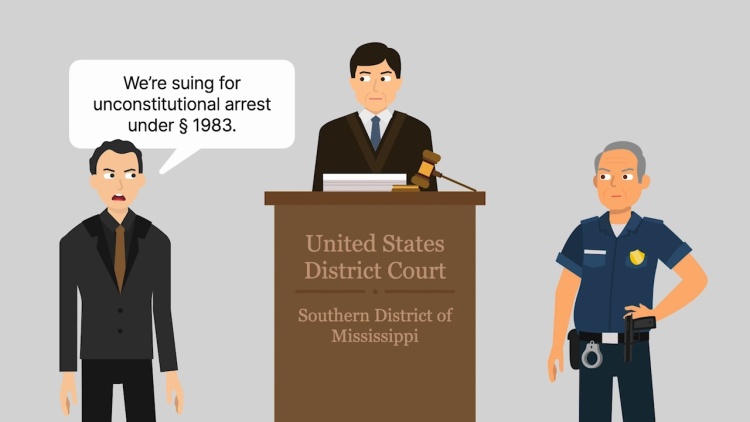Pierson v. Ray
United States Supreme Court
386 U.S. 547 (1967)
- Written by Whitney Kamerzel , JD
Facts
African American and White clergy members (the clergy members) (plaintiffs) sat together in a segregated waiting room at a bus depot. Police officers of the city of Jackson, Mississippi (the police officers) (defendants) arrested the clergy members under a statute that prohibited public congregations that breached the peace. The clergy members spent four months in jail until the charges were dropped. The Mississippi statute used to charge the clergy members was eventually found unconstitutional in a separate case under similar facts. The clergy members sued the police officers in federal district court for damages under 42 U.S.C. § 1983. The police officers argued they were not liable because they made the arrests in good faith and with probable cause that the Mississippi statute was being violated, and they could not predict that the statute would be judged unconstitutional in the future. A jury trial returned a verdict for the police officers. The court of appeals reversed and held that the defense of good faith and probable cause did not apply to the police officers. However, the court of appeals remanded the case on procedural grounds. The jury held that the police officers were still not liable, because the clergy members acted with the anticipation that they would be arrested, which amounted to consent to the wrongful arrest. The United States Supreme Court granted certiorari.
Rule of Law
Issue
Holding and Reasoning (Warren, C.J.)
What to do next…
Here's why 899,000 law students have relied on our case briefs:
- Written by law professors and practitioners, not other law students. 47,000 briefs, keyed to 994 casebooks. Top-notch customer support.
- The right amount of information, includes the facts, issues, rule of law, holding and reasoning, and any concurrences and dissents.
- Access in your classes, works on your mobile and tablet. Massive library of related video lessons and high quality multiple-choice questions.
- Easy to use, uniform format for every case brief. Written in plain English, not in legalese. Our briefs summarize and simplify; they don’t just repeat the court’s language.





